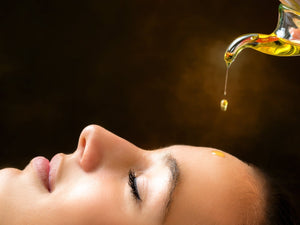Stress has taken over our lives, and it has become such a normal part of our lifestyle that it affects more than we can imagine. Every disease you name has some involvement of stress in it! Even worse is that even sleep, the one thing we look forward to after the end of every day, has become a casualty of stress. Just imagine this feeling: It's the dead of night, and you find yourself tossing and turning, your mind racing with thoughts that refuse to be silenced. You're not alone. According to recent studies, 45% of adults experience disrupted sleep due to stress!
Notably, this correlation between stress and disturbed sleep is not merely inconvenient; it's a more profound connection that influences our overall well-being! The need is to understand this and uncover how stress infiltrates our nights, affecting the quality of our sleep and, consequently, the quality of our waking hours.
Let's explore how stress and sleep collide and affect our lives, along with the ways to manage it.
The link between stress and sleep
The relationship between stress and sleep is rooted in our body's physiological and psychological functions. Let's begin with understanding both aspects.
Our body's physiological response to stress
Our brain releases stress hormones (cortisol) whenever we experience any stressful situation. This puts the body into the "fight or flight" mode to prepare it to deal with the challenges head-on. While this heightened state of alertness is beneficial, the constant production of such responses takes a toll on the body, disrupting our sleep-wake cycle. It even suppresses the production of sleep hormone (melatonin), making it harder for us to transition into a relaxed, sleep-ready state.
Our body's psychological response to stress
The impact of stress is not just limited to our bodies; it can seep into the fabric of our thoughts and emotions, causing problems! This psychological toll of stress can lead to racing thoughts, worry, and anxiety, creating a mental environment that is not at all favorable enough for restful sleep. And not just that; chronic stress can make a loop where the inability to sleep becomes an additional source of stress.
Effects of stress on sleep quality
The impact of stress on our sleep goes way beyond mere restlessness; it ends up disrupting the whole sleep cycle!
A regular sleep cycle consists of various stages, from the initial light sleep to the crucial deep sleep and, finally, REM (Rapid Eye Movement) sleep, where most dreaming occurs. However, due to stress, this structured sequence becomes disrupted.
To begin with –
- It leads to difficulties in falling asleep.
- It prevents the transition from wakefulness to getting ready to sleep.
- Chronic stress can even shorten the duration of deep sleep, leaving us fatigued and mentally drained upon waking.
- Poor sleep affects not only the quantity but also the quality of our rest, impacting our ability to function properly during waking hours.
- Stress can also bring along several sleep disorders like Insomnia (inability to fall asleep), Sleep Apnea (interruptions in breathing during sleep), and Restless Leg Syndrome (involuntary shaking or jerking of legs in sleep).
You see, dealing with stress is not merely about losing a few hours of sleep but how it affects our whole life in ways we cannot imagine.
Signs your sleep is affected by stress
If you are still confused about whether stress affects your sleep, we have compiled a list of signs to help you better understand!
Physical Signs –
- Muscle tension
- Frequent waking
- Stomach issues
- Racing heart
- Teeth grinding
- Abnormal breathing
- Shaking legs
- Painful perceptions
- The feeling of tightness in the chest
Mental Signs –
- Racing thoughts
- Difficulty finding peace
- Nightmares or vivid dreams
- Lack of focus
- Difficulty concentrating
- Feeling anxious all the time
- Inability to stay asleep
- Waking up tired
- Overthinking things
- Poor problem solving
Coping strategies for better sleep
Now that you have recognized the danger signs, it is time to understand how to deal with them.
Stress Management Techniques
- Practice Pranayama or deep breathing exercises
- Engage in mindfulness meditation practices
- Focus on muscle relaxation workout
- Incorporate yoga into a routine
- Immerse yourself in nature
Sleep Hygiene Practices
- Set a regular bedtime and wake-up time
- Create a comfortable sleeping environment
- Limit stressful stimuli and screentime before bed
- Avoid heavy meals, alcohol, caffeine, and nicotine close to bedtime
- Engage in calming activities like soft music or bedtime reading before sleep
Ayurvedic Remedies
Identify your imbalanced Dosha and adopt practices to balance it. For example,
Warm and nourishing foods and activities for Vata
|
Foods |
Activities |
|
|
Cooling and soothing diet and lifestyle for Pitta
|
Foods |
Activities |
|
|
Warm but drying and invigorating meals and practices for Kapha
|
Foods |
Activities |
|
|
These simple but powerful steps can change how stress affects your sleep and waking life. Incorporate these changes into your routine and see the positive results it can bring,








